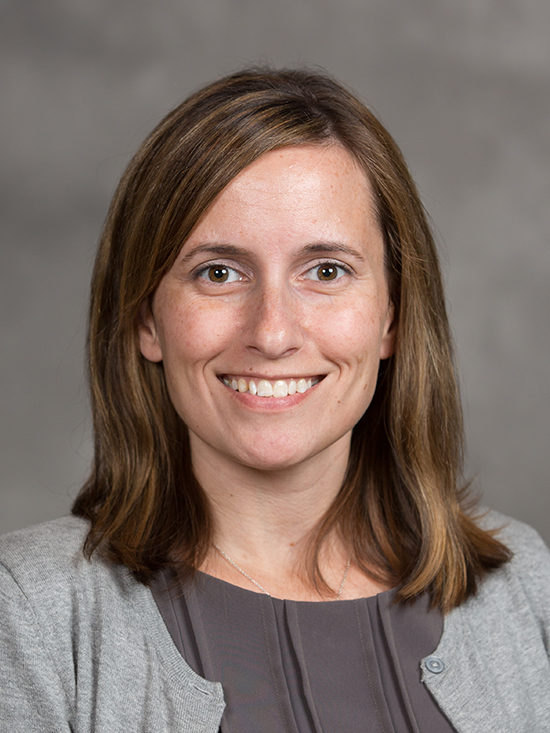The Transition From Patient to Survivor
What you need to know to get the best health care beyond cancer treatment

You got your diagnosis, endured treatment and are moving into the survivorship phase. What now? Which doctors do you see for follow up care? What if you have other illnesses besides cancer? What if you have long-term side effects from your cancer treatment and need treatment for those? Do you see your primary care physician or your oncologist?
The transition from cancer patient to cancer survivor is an occasion to celebrate, but also comes with questions and uncertainty. As more patients survive cancer, the health care field faces a new challenge: How to best manage the ongoing care of cancer survivors. The population of cancer survivors is increasing -- an excellent problem in that more people are surviving cancer, but one that must be addressed in order to give patients high-quality, coordinated and patient-centered care.
We sat down with Lauren Wallner, Ph.D., MPH, a researcher at the University of Michigan Rogel Cancer Center, to discuss the issues of survivorship that patients need to think about and what research has shown about providing cancer survivors with the best health care possible as they age.

Q: Why is survivorship care such a big area of focus in your research?
Thanks to curative therapy, early detection and prevention, patients are living longer. We need to think about the best way to care for them long term. We need to ensure they’re well cared for by the right doctors, without overloading doctors and resources needed for newly diagnosed cancer patients.
Q: What are some of the issues patients should be thinking about as they transition from patient to survivor?
There are quite a few, actually. In my recent study of breast cancer patients, women were questioned about follow-up screenings, such as annual mammograms and screenings for other cancers, their general care (think flu shots, annual physical), and what other health problems they are treated for, such as diabetes or heart disease. On top of that, which doctor do they prefer to see for each concern?
There are also survivorship issues related to managing worry of recurrence, anxiety about scans and depression that can come with cancer. They may have residual side effects from treatment, such as neuropathy. Some patients continue to have financial hardship long after treatment or employment issues. Many patients need support and resources for these issues. We were interested in understanding -- from the patient’s perspective -- who they prefer to have direct their health care. Their oncologist? Their primary care physician? In order to deliver patient-centered care, we should address patient preferences. And, there’s an opportunity to counsel patients ahead of time on what will happen next with their care.
Q: Why is it complicated? Wouldn’t a patient see a cancer doctor for cancer related issues and their primary care physician for other issues?
Clinical guidelines for survivorship care don’t specifically outline which provider handles which aspect of survivorship care. And again, surviving with cancer long-term is a fairly new phenomenon.
Primary care physicians deal with a collection of issues with aging patients. Cancer is one of many conditions a patient might have. PCPs can’t be expected to know it all. And, being a cancer expert is difficult when research keeps changing.
Developing new models of survivorship care depends a lot on us understanding the patient perspective on follow up care. We need to know what patients want, what access they have to certain doctors, how well their doctors are communicating with them and the patient’s level of trust in their providers.
Q: What did the patients you studied say they want for survivorship care?
The majority of women wanted oncologists to handle mammography and secondary cancer screenings, and their primary care physician to handle general care and care for other illnesses. It was not surprising that patients prefer their oncologist handle services related to cancer.
We also looked at how their answers varied by race, education, age and insurance status. We found that minority women and those with less than a high school education more often wanted to see their oncologist for primary care. So we may face some additional challenges in trying to improve survivorship care delivery in diverse populations.
Q: How do you think survivorship care will look for patients in the future?
Health care experts are calling for "team-based cancer care." This means sharing a patient’s care between oncologists, primary care physicians and any other specialists involved in treating different illnesses as needed. It requires a high level of coordination among doctors. Communication among the care teams is critical.
Also, communication between patients and their doctors will continue to be extremely important. Patients deserve high-quality care that is well coordinated and centered around their individual health situation.
Patients should feel empowered to speak with their doctors and ask questions. The patient is an essential part of the health care team. They should actively participate in the process.
Read the Fall, 2017 issue of Thrive.
